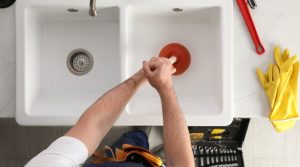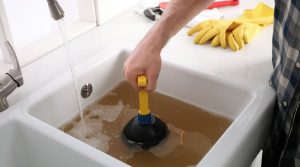Radiators keep us warm and cozy, but improper use or neglect can lead to serious risks. Follow these essential radiator safety tips to stay safe.
Key Takeaway
- Annual Maintenance: Schedule yearly checks to prevent damage and ensure safety.
- Proper Placement: Keep radiators away from furniture and flammable items.
- Bleed Radiators Regularly: Remove trapped air to maintain efficiency.
- Electric Models: Handle with care; avoid extension cords and unsafe surfaces.
- Childproofing: Use radiator covers to protect children and pets.
Radiators are integral to many homes, providing warmth during chilly months. Yet, despite their prevalence, many homeowners overlook basic maintenance and safety practices. Neglected radiators can lead to inefficiency, accidents, or even fire hazards. Whether you have central heating or freestanding electric models, understanding how to use and maintain radiators safely is crucial for your household’s well-being.
Regular Maintenance is Key
Scheduling annual maintenance for your radiators and boiler is one of the simplest yet most effective ways to ensure safety and performance. A professional inspection can identify early signs of wear, rust, or leaks, preventing more significant issues.
- Why Annual Checks Matter: Even when they appear fine, radiators can have hidden problems, like internal rust or partially blocked pipes. These issues can reduce heating efficiency and increase energy bills.
- Professional Servicing: During a routine service, technicians can Check for leaks, cleanse the system, and make sure valves and thermostats function correctly.
Proper Placement of Radiators
Placement plays a critical role in both safety and efficiency. Avoid positioning furniture, curtains, or other flammable items near your radiator.
- Why Placement Matters: Items placed too close to radiators can block heat circulation, causing uneven room temperatures. Moreover, prolonged exposure to heat can damage furniture and increase fire risk.
- What You Can Do: Maintain at least a few inches of space between your radiator and surrounding objects. Consider installing stylish radiator covers to enhance safety without compromising efficiency.
Bleeding Your Radiator
Air trapped inside your radiator can cause cold spots and reduce heating efficiency. Bleeding your radiator at the start of the cold season ensures optimal performance.
Steps to Bleed a Radiator:
- Turn off the heating system to allow the radiator to cool.
- Locate the bleed valve (usually at the top corner of the radiator).
- Use a radiator key to open the valve slowly. Listen for a hissing sound as Air leaks out.
- Once water starts to trickle out, close the valve tightly.
- Turn the heating back on and check if the radiator heats evenly.
Safety Tips for Electric Radiators
Freestanding electric radiators offer portability but come with their own set of risks. Handle them with care to avoid accidents.
- Flat, Non-Flammable Surfaces: Always place electric radiators on stable, heat-resistant surfaces to prevent tipping or overheating.
- To avoid Overloading Circuits, Plug electric radiators directly into wall outlets. Extension cables are a fire hazard because they can overheat.
- No Drying Clothes: While drying clothes on a radiator may be tempting, it can obstruct heat flow and increase fire hazards.
Childproofing Your Radiators
Radiators can pose risks to children and pets, who may not understand the danger of hot surfaces. Childproofing measures can significantly reduce these risks.
- Radiator Covers: Install wooden or metal covers to prevent direct contact with hot surfaces. These covers come in various designs to match your home’s decor.
- Educate Children: Educate children on the risks of touching radiators and establish clear safety rules.
FAQs
Q: How often should I bleed my radiator?
A: Bleed your radiator at least once a year, preferably before winter begins. If you notice cold spots or hear gurgling sounds, you must bleed it again.
Q: Can I place my sofa in front of a radiator?
A: It’s not recommended. Blocking a radiator with furniture hinders heat circulation and can increase energy consumption. Leave a gap of at least 12 inches.
Q: Are electric radiators more dangerous than central heating radiators?
A: Electric radiators carry specific risks, such as overheating and fire hazards, if not used correctly. However, with proper precautions, they are safe and effective.
Q: What should I do if my radiator is leaking?
A: Turn off the heating system and call a professional to inspect and repair the issue. Do not attempt DIY repairs unless you are trained.
Q: Can radiator covers reduce heating efficiency?
A: High-quality radiator covers are designed to allow proper heat flow. Choose covers with perforated or open designs to maintain efficiency.
Conclusion
Radiators are essential for maintaining a warm, comfortable home. Still, they require regular maintenance and thoughtful use to ensure safety. By following these tips—from bleeding your radiators to childproofing and professional servicing—you can enjoy efficient heating without unnecessary risks. Prioritize radiator safety to protect your loved ones and keep your home cozy year-round.
Your Plumbing Problems, Solved
When it comes to plumbing, CBJ Plumbers leads the way with a team of skilled and licensed professionals in New Jersey. From minor repairs to major projects, we provide exceptional service for residential and commercial properties. We’re ready to assist you—give CBJ Plumbers a call today!





